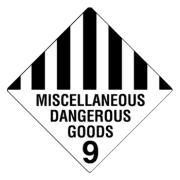DGR transportation signs
Class 1 – Explosives
Substances or articles that pose a significant risk of explosion, and they are divided into six divisions based on their primary hazards.
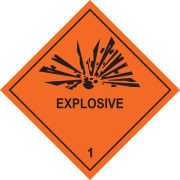
Class 2 – Flammable Gases
Materials that are highly volatile and pose significant fire and explosion risks. These gases, under certain conditions, can ignite and cause severe damage.
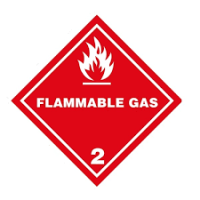
Class 3 – Flammable Liquids
Materials that are highly volatile and present significant fire hazards. These liquids can ignite easily and cause severe damage if not properly managed.
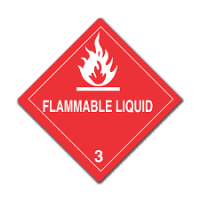
Class 4 – Flammable solids
Materials that can ignite easily and present significant fire hazards. These solids may burn vigorously and can even cause explosions under certain conditions. They are divided into 3 divisions.
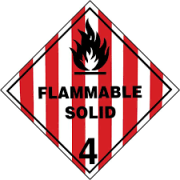
Class 5 – Oxidizing Substances; Organic Peroxides
Materials that can contribute to the combustion of other materials by providing oxygen. These substances can intensify fires and pose significant hazards if not properly managed.
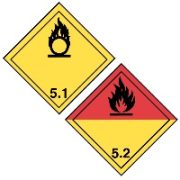
Class 6 – Toxic Substances; Infectious Substances
Materials that can cause harm to human health, animals, or the environment. These substances are potentially lethal if inhaled, ingested, or come into contact with skin.
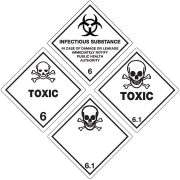
Class 7 – Radioactive materials
Substances that emit ionizing radiation. These materials are used in various industries, including medical, research, and industrial applications.
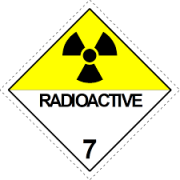
Class 8 – Corrosive substances
Materials that can cause severe damage to living tissue, other materials, or the environment through chemical reactions. These substances are typically acids, bases, or other chemicals with corrosive properties.
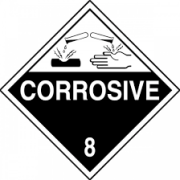
Class 9 – Miscellaneous dangerous items
Substances and materials that present a hazard during transportation but do not fall under the categories of Classes 1 to 8. These goods may include environmentally hazardous substances, substances that are harmful to aquatic environments, and miscellaneous items with varying degrees of risk.
